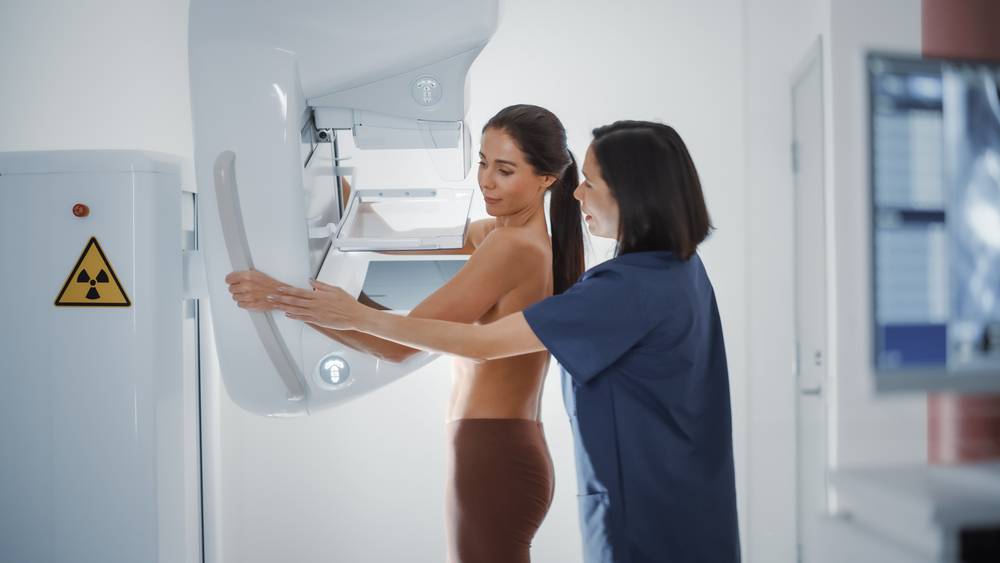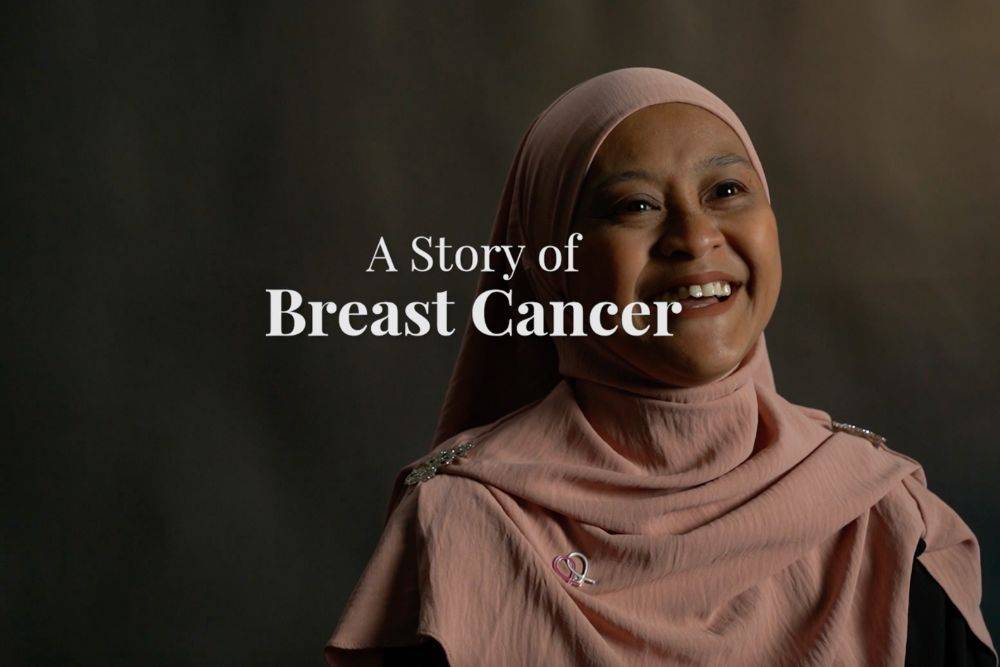Breast cancer is the leading cancer among women in Singapore, yet only 21.5% of Malay women aged 50 to 69 participate in routine screenings.
This is significantly below the national average of 37.6%, a disparity with life-altering consequences. Late-stage diagnoses often mean fewer treatment options and poorer outcomes, a reality Eryannie, a Malay-Muslim breast cancer survivor, knows all too well.
Eryannie discovered a lump during a self-examination just before a scheduled mammogram.
Her quick action led to a stage two diagnosis, but she worries that many others may not act in time. “I always tell [other women] it’s better to know early and find a solution rather than let it be in you, not knowing how it will depreciate your life.”
“It’s better to know early and find a solution rather than let it just be in you,”
For many Malay women, family obligations take priority, pushing their own health needs aside until symptoms become severe.
Breaking Cultural Barriers to Early Detection
A major focus of the Breast Cancer Foundation’s (BCF) multi-sectoral workshop was addressing the cultural and societal factors that prevent many Malay women from seeking timely breast cancer screenings. Misconceptions about mammograms being painful, along with fear of a potential diagnosis, discourage many women from getting checked. Additionally, some rely on alternative therapies or avoid medical help due to stigma surrounding cancer.
As Dr. Choo Bok Ai, Senior Consultant Radiation Oncologist and Vice President of BCF, emphasises, “In my practice, I come across many Malay women who present with advanced local breast cancer, where the breasts are fungating, bleeding, infected, and causing much pain. At these late stages, there are fewer treatment options.”
“We must drive home the point of early detection: saving breasts, and saving lives.”
Efforts to overcome these barriers include collaborating with religious leaders, mosques, and community institutions to provide culturally sensitive education. These initiatives aim to dispel myths and create a supportive environment for women to seek screenings without fear.
Watch now: Breast Cancer: Symptoms, Risk Factors and Treatment | Dr. Tan Chuan Chien
Dispelling Fears Around Mammograms
Many Malay women hesitate to undergo mammograms due to misconceptions and fears surrounding breast health. Survivors like Eryannie have heard these concerns firsthand.
“As a Malay-Muslim woman, whenever I do sharing to the public, every time, what I heard from them is they have the worries of going through mammogram. So they always describe it as something that is painful, something that they wouldn’t want to go through and not wanting to know what is in them, so they would rather not know,” she shares.

Adeline Kow, General Manager of BCF, acknowledges that these fears are widespread. “There’s a lot of stigma and taboo in terms of breast health and breast screening. They are fearful of the pain of doing mammograms,” she explains.
However, she emphasises that addressing these concerns is key to improving screening rates among Malay women in Singapore. Through culturally sensitive outreach and education, BCF hopes to dispel myths and encourage more women to take the critical step of early detection.
Collaborative Efforts to Improve Breast Cancer Outcomes
To bridge the gap in breast cancer screening among Malay women, BCF is partnering with community leaders, healthcare providers, and religious institutions. These efforts aim to reduce stigma, educate women on the importance of early detection, and improve access to screening services.
BCF’s approach is inclusive and secular. “One of the key things that BCF provides is the psychosocial emotional support to our members.” explains Adeline.
“We are secular, so it doesn’t matter what race or nationality, we will support you,”
Despite the outreach being tailored to the Malay community, the foundation ensures that every woman, regardless of background, receives the care and support she needs.
BCF is working closely with mosques and Malay-Muslim organisations to deliver culturally sensitive programmes that address specific concerns within this community.
“We worked with HPB, a lot of the hospitals, with mosques, and other institutions to talk about how we could actually better improve the screening rates among the Malay community,” says Kow.
Taking Control of Breast Health
Regular self-examinations, staying informed about the signs of breast cancer, and understanding risk factors can empower women to take control of their health and gradually build up confidence for more formal screening procedures.
1. Self-examinations
One of the simplest first steps is performing regular breast self-examinations. Women can do this monthly, ideally a week after their menstrual cycle. Self-exams help check for lumps, unusual changes, or irregularities. Early detection through these exams can alert women to potential concerns, even before a mammogram.
BCF encourages women to familiarise themselves with how their breasts normally look and feel. This makes it easier to identify any unusual changes.

2. Know the symptoms
Understanding the signs of breast cancer can be just as crucial as scheduling regular screenings. Symptoms can include lumps, swelling, nipple discharge, or changes in breast shape.
3. Understand who should get screened
Women aged 40 and above should consider scheduling regular mammograms, especially if they have risk factors such as a family history of breast cancer. Mammograms for women over 40 are free as part of the national Healthier SG initiative.
For women between 50 and 69, regular screenings are highly recommended, as breast cancer becomes more common with age.
4. Build confidence with health professionals
For women who feel uncertain or anxious about mammograms, starting with consultations and advice from healthcare providers can ease the process. Engaging with healthcare professionals early on helps build trust and understanding, making the transition to formal screenings less daunting.
For more information on mammogram scheduling and breast health resources, visit the Breast Cancer Foundation website.

